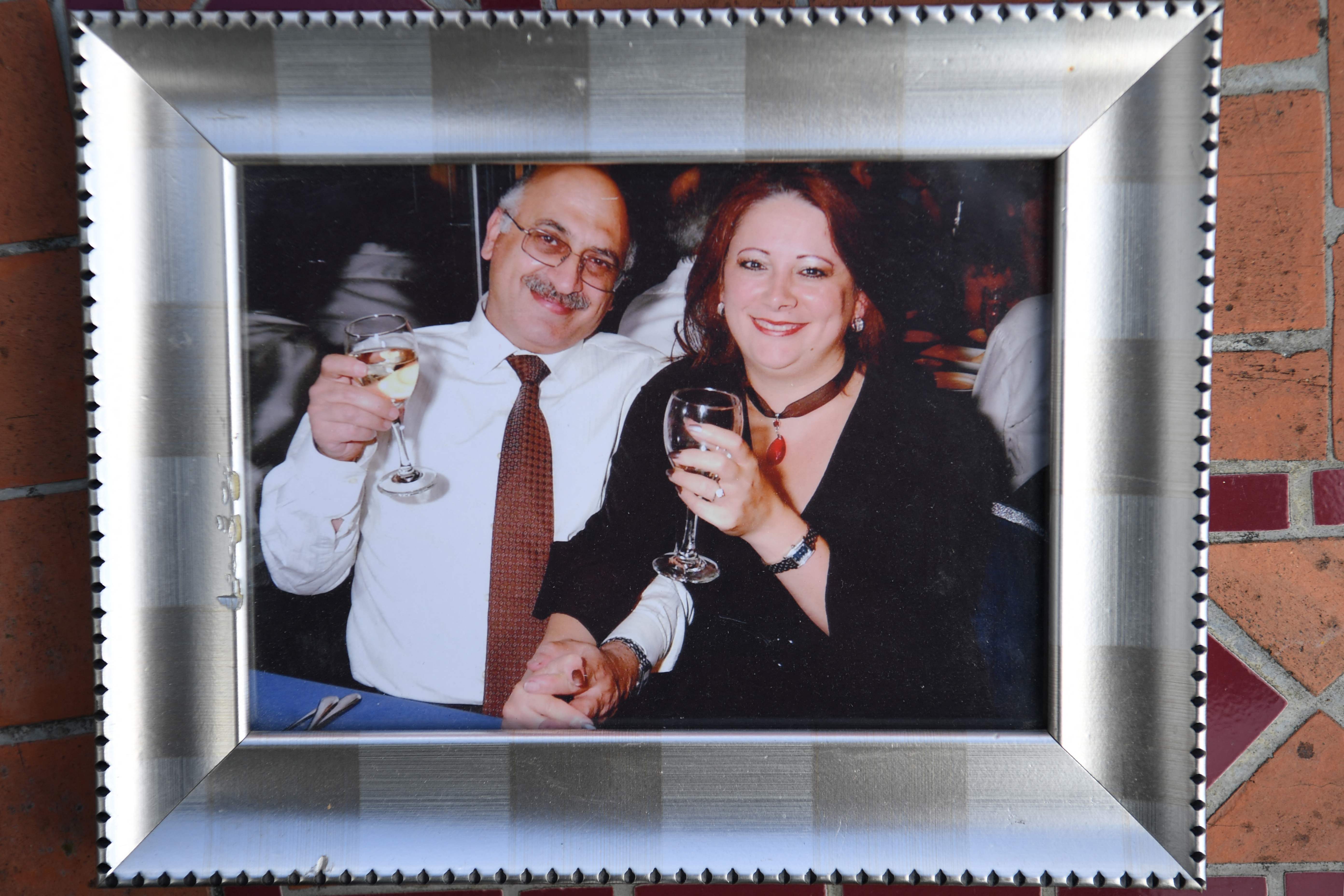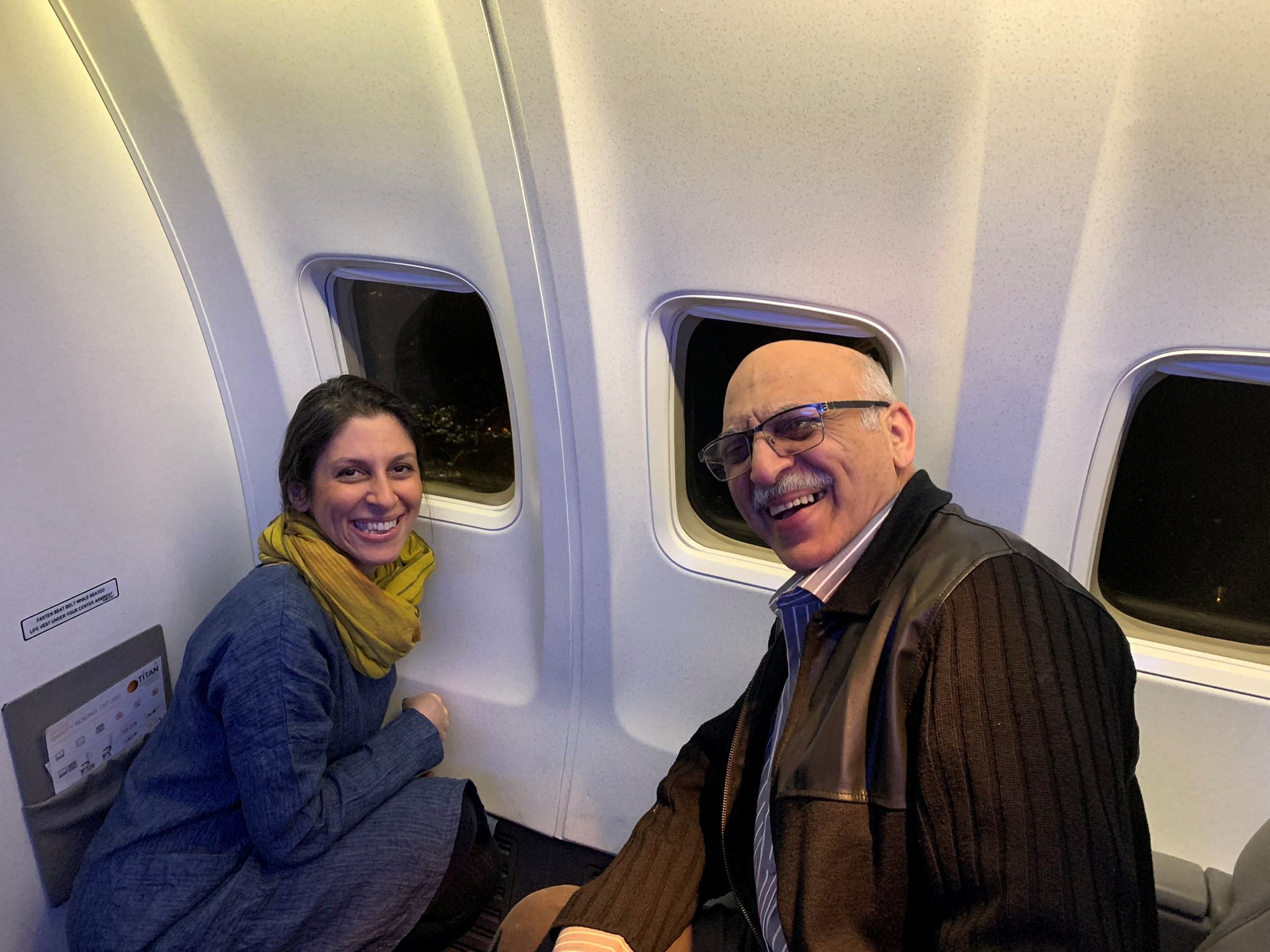‘It still doesn’t feel real’: Wife of freed Iran detainee welcomes him home after five years
“I couldn’t wait to hug him,” said Sherry Izadi, the wife of Anoosheh Ashoori

Your support helps us to tell the story
From reproductive rights to climate change to Big Tech, The Independent is on the ground when the story is developing. Whether it's investigating the financials of Elon Musk's pro-Trump PAC or producing our latest documentary, 'The A Word', which shines a light on the American women fighting for reproductive rights, we know how important it is to parse out the facts from the messaging.
At such a critical moment in US history, we need reporters on the ground. Your donation allows us to keep sending journalists to speak to both sides of the story.
The Independent is trusted by Americans across the entire political spectrum. And unlike many other quality news outlets, we choose not to lock Americans out of our reporting and analysis with paywalls. We believe quality journalism should be available to everyone, paid for by those who can afford it.
Your support makes all the difference.The wife of the British-Iranian man who returned to the UK this week after being imprisoned in Iran for nearly five years has said she is extremely happy and relieved to have her husband home.
Sherry Izadi, the wife of Anoosheh Ashoori, told The Independent that the nightmare she had been living through while her husband was imprisoned had been replaced by a “euphoric” dream-like feeling.
“It still doesn’t feel real,” she said. “Even though he’s here, and he’s real and he’s concrete I think our brains have not quite assimilated yet.”
Until Thursday, Ms Izadi, 58, had not seen her husband, a retired engineer and father to two grown-up children, for nearly five years after he was arrested while on a trip to Iran in August 2017.
In October 2018, Mr Ashoori, now 67, was sentenced to 10 years in prison for “cooperating with a hostile state,” Israel, and to two years for “obtaining illicit funds”, with his sentences to be served concurrently.
Ms Izadi had always denied the charges against her husband, who she said was just a pawn in what she described as Iran’s “hostage diplomacy.”
Mr Ashoori returned home to the UK on Thursday alongside Nazanin Zaghari-Ratcliffe, after ministers settled a decades-old debt owed to the Iranian government. The British government has refused to acknowledge a link between the debt and the detention of the dual nationals.

Iran’s Embassy said in a statement on its website that the release of the two prisoners was not linked to the British debt. The Independent has attempted to reach the Embassy for further comment.
A third detainee, London-born wildlife conservationist Morad Tahbaz, was temporarily released from prison “on furlough” but his ultimate fate is complicated by the fact he has US nationality as well as British and Iranian. British-Iranian Mehran Raoof remains in custody as his release does not appear to have formed part of the deal. The US and other countries also seek to secure the release of dual nationals detained by Iran.
Ms Izadi told The Independent that she only let out a sigh of relief when she was told that Mr Ashoori and Mrs Zaghari-Ratcliffe were on a plane and out of Iranian airspace.
“When he stepped off the plane, I think that was when it started to hit home that he was truly back,” she said.
She recalled how the first emotion that went through her mind on seeing her husband was “supreme relief,” followed by joy that he is healthy and free. Ms Izadi said he looked thinner and had aged but was free.
“I couldn’t wait to hug him,” she said.
Ms Izadi described the last week as a “whirlwind.” Last Sunday, she said she had been feeling particularly low after talks aimed at reviving Iran’s tattered nuclear deal with world powers were paused after Russia demanded relief from sanctions targeting Moscow over its war in Ukraine.
“I think that was one of the lowest points in our life,” she said. “We thought this is it, this is another opportunity, an opportunity that’s been lost and we never thought that there would be a turnaround within hours, days.
“There had been no time for mental preparation as it were, which is why the emotions were so extreme from one pole to another.”

World leaders are attempting to revive the 2015 pact between Iran and six world powers - US, Russia, China, Germany, France, Britain.
In 2018, former US president Donald Trump unilaterally withdrew from the accord, which limited Tehran’s nuclear programme in exchange for sanctions relief. Instead, Mr Trump reimposed sanctions against Iran, crippling its economy.
Foreign and dual national prisoners in Iran had made negotiations more complex. Iran does not recognize dual nationality for its citizens.
On being released from prison, Mr Ashoori was able to visit his elderly mother while guards watched the house, Ms Izadi said. At 91 years old it was unclear if his mother would be able to come to the UK and Mr Ashoori had no intention of returning to Iran, she added.
“If not that would have been effectively the last time that he was to see his Mum,” she said.
Mr Ashoori was held in the notorious Evin prison, where his family has said he was kept in solitary confinement for months with no access to fresh air and the light switched on 24 hours a day. More than once he attempted suicide, Ms Izadi has said. In January, he went on hunger strike in the hope of bringing global attention to those detained in Iranian prisons, according to his daughter, Elika.
Now back home, Ms Izadi said her husband is adjusting well, has had his first beer and first English breakfast and she said the dogs recognised him. They had spent the last couple of days talking and Mr Ashoori shared some of his memories from his time in prison.
He is already talking about what he wants to do next, including campaigning for the prisoners left behind and training for the London marathon, she said. Ms Izadi said she felt for the families who still have loved ones behind bars in Iran and said it was a feeling she herself had experienced before.
“We have to continue this fight because it’s not over,” she said. “You have to fight for the ones left behind.”
The Associated Press contributed to this report.
Join our commenting forum
Join thought-provoking conversations, follow other Independent readers and see their replies
Comments